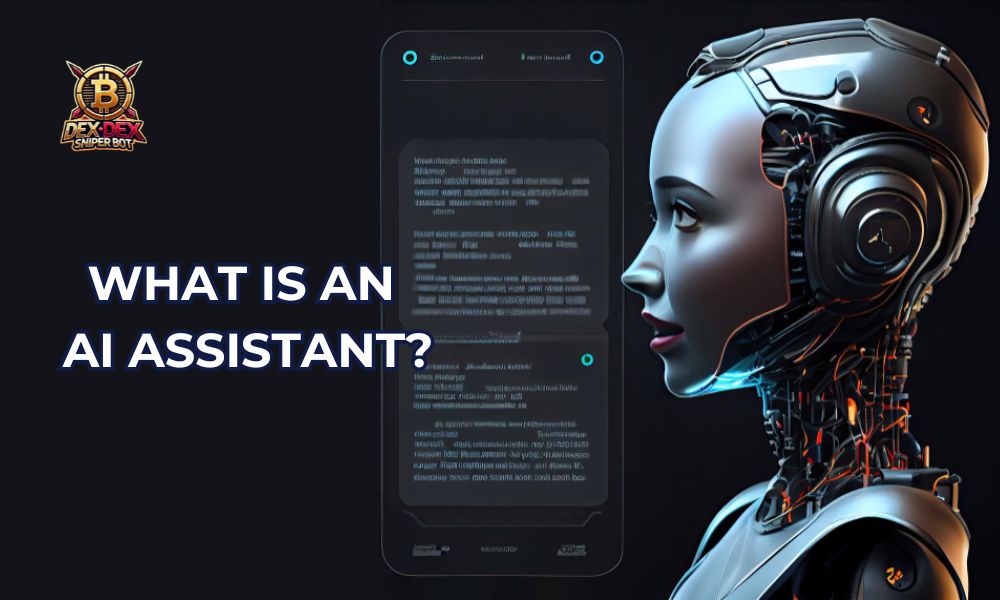AI agent vs assistant often causes confusion, as both are artificial intelligence applications designed to help humans. This article will clarify the core differences, from their autonomy to operational goals. Understanding this distinction will help you correctly comprehend and effectively apply each type of advanced AI technology in your work and daily life.
Table of Contents
AI assistant: The responsive companion
An AI assistant, or virtual assistant, is an AI program designed to perform specific tasks at the direct request of a user. They operate based on a reactive mechanism, meaning they only act when commanded or triggered by a human.
Key characteristics:
- Command-based interaction: AI assistants wait for and respond to user commands and questions. Typical examples include Apple’s Siri, Google assistant, and Amazon’s Alexa.
- Specific task execution: They excel at setting alarms, sending messages, playing music, quickly looking up information, and controlling smart home devices.
- Low autonomy: Decisions and goals are set by the user. An AI assistant does not independently propose or execute complex actions beyond its pre-programmed scope.
- Limited learning: Some assistants can learn from interactions to improve responses, but they primarily rely on rules and initially provided data.
- For instance, when you say, “Hey Google, turn on the living room lights,” Google assistant receives the command and executes it. It doesn’t decide to turn on the lights without your request. The conversation about AI agent vs assistant often begins with familiarity with these virtual assistants.

AI agent: The proactive and autonomous partner
An AI agent, or intelligent agent, is a more complex AI entity. It has the ability to perceive its environment through sensors, make decisions based on that perception, and act through actuators to achieve specific goals.
Key characteristics:
- Proactivity: An AI agent not only reacts to commands but can also initiate actions to achieve its goals. They can identify opportunities or problems and address them independently.
- Autonomy: AI agents can operate independently without continuous human intervention. They manage their internal state and make decisions based on experience or learned knowledge.
- Goal-oriented: All actions of an AI agent are aimed at achieving one or more predefined or self-established goals.
- Learning and adaptation: Many AI agents are designed with machine learning capabilities, allowing them to improve their performance over time based on collected data and experience.
An example of an AI agent could be an autonomous robot in a warehouse, independently finding the optimal path to retrieve goods, avoid obstacles, and recharge when necessary. Or an algorithmic trading system that automatically analyzes the market and makes decisions to buy/sell stocks.
Detailed comparison: AI agent vs assistant
To further clarify the differences, let’s compare AI agent vs assistant across several criteria:
| Criterion | AI Assistant | AI Agent |
| Proactivity | Reactive – Awaits commands | Proactive – Initiates actions independently |
| Autonomy Level | Low – Highly dependent on the user | High – Capable of independent operation |
| Goal | Executes specific tasks assigned by the user | Achieves overall goals, may define sub-tasks itself |
| Decision-making | Primarily based on commands and predefined rules | Makes decisions based on perception, analysis, and learning |
| Learning | Limited, mainly improves user interaction | Capable of deep learning, adapts to changing environments |
| Scope of Operation | Usually single tasks, personal support | Can solve complex problems, manage large systems |
| Examples | Siri, Google assistant, Alexa, customer support chatbots | Autonomous robots, self-driving cars, AI supply chain management systems |
When to use an AI agent and when an AI assistant?
The choice between AI agent vs assistant depends on the needs and purpose of use:
Use an AI assistant when you need to:
- Quickly perform simple tasks (set appointments, send messages).
- Retrieve instant information.
- Control smart devices with voice commands.
- Have a friendly and easy-to-use interactive interface.
Use an AI agent when you need:
- Automation of complex processes.
- A system capable of autonomous decision-making and adaptation.
- Solutions for optimization or prediction problems.
- Independent operation for extended periods without continuous supervision.
The line between AI agent vs assistant can sometimes blur as virtual assistants become increasingly integrated with more intelligent and autonomous capabilities. However, fundamentally, the differences in proactivity and decision-making ability remain core distinguishing factors.
Clearly understanding the fundamental difference between AI agent vs assistant is crucial for effectively applying AI technology. We hope this article provided useful information. Don’t forget to follow Dex Sniper Bot for more exciting tech insights and updates!

